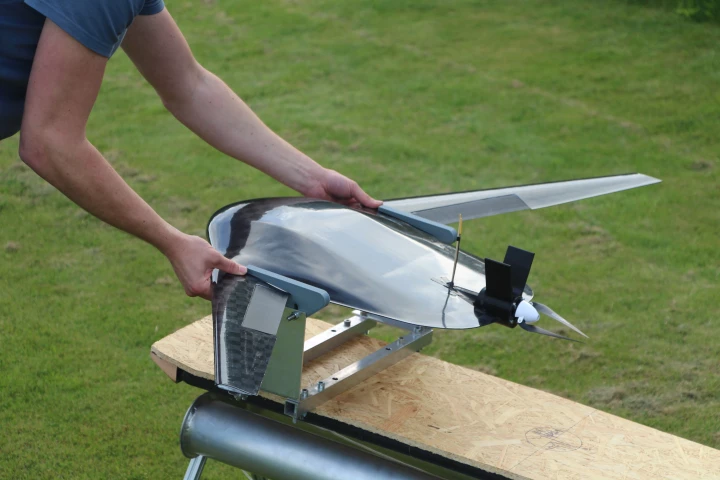Search
-
Researchers from Chalmers University of Technology are working on a new autonomous search and rescue system made up of a marine vessel that can launch a fleet of fixed-wing drones to scout a predefined area, along with live-feed quadcopters.
-
Famed American aviator Amelia Earhart disappeared in 1937, while attempting to fly around the world in a Lockheed Model 10E Electra. Now, a high-tech unmanned boat has been enlisted to help search for that plane, near an island where Earhart may have crash-landed.
-
If you enjoy moving your hands as if you're conducting a piece of music that you like, then SoundTracer may be right up your alley. The experimental new iOS app allows you to find a song within a digital library, by "drawing" that music in the air with your phone.
-
Eleven plaintiffs have joined forces to sue the Department of Homeland Security with the help of the EFF and the American Civil Liberties Union, arguing that policies around border officers searching the electronic devices of US citizens are unconstitutional invasions of privacy.
-
In a fight against "offensive or clearly misleading" results that make up about 0.25-percent of daily search traffic, Google has outlined new efforts to stymie the spread of fake news and other low-quality content like unexpected offensive materials, hoaxes and baseless conspiracy theories.
-
The latest entrant to the VTOL drone arena comes from researchers at the Delft University of Technology, whose delftAcopter relies on a helicopter propellor to be lifted off the ground and then soars like a plane once in the air.
-
An online self-diagnosis will usually elicit a rolling of the eyes and a biting of the tongue from the GP when you do eventually make the trip to the doctor's office. Now Google is making efforts to return more relevant and trustworthy search results when you punch in your symptoms.
-
One company is looking to add another layer of sophistication to robotic rescue teams, launching a drone-attachment that is claimed to detect the heartbeats and breathing of people trapped under rubble.
-
Some Google Now users can now ask about a place they're near without mentioning it by name. For example, you might be standing in front of the Eiffel Tower and simply ask "How tall is this?" and Google Now will be able to discern what you're asking about based on your mobile device's location data.
-
The latest move to enhance search and rescue efforts through the use of drones comes from Lockheed Martin, which will team up with non-profit Project Lifesaver to better help people with cognitive disorders that wander away from home.
-
In order for household robots to be truly useful, it would be great if they could go and find items for you. Thanks to research being carried out at Georgia Tech, that may someday be the case. A robot there is now able to search out hidden objects – as long as they've been labelled first.
-
Google Now is expanding: landing in Chrome browsers, and improving on Android.
Load More











